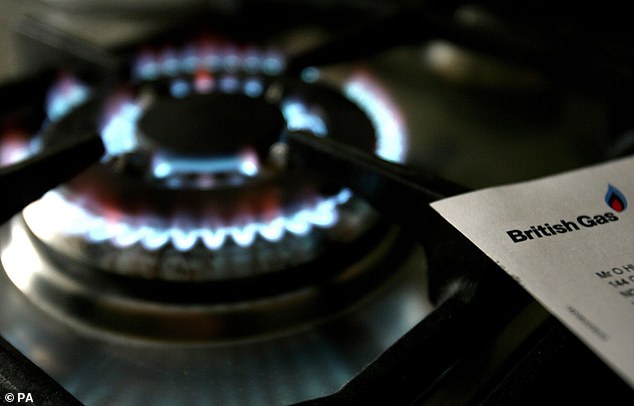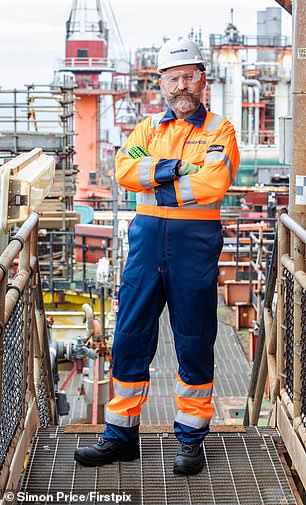- Chris O’Shea admits he was paid too much, but gets paid anyway
Extraordinary salary: Centrica boss Chris O’Shea
The owner of British Gas is facing a showdown with shareholders over plans to hand its chief executive an £8.2m pay and bonus package.
Centrica has been criticized by its campaigners for giving Chris O’Shea such large rewards while millions of gas and electricity users are still struggling with the cost of living crisis, including high utility bills.
Centrica’s board will meet its investors at the company’s annual meeting on Wednesday.
Pirc, a research group that advises investors on how to vote on issues including executive pay, has urged shareholders to vote against O’Shea’s 2023 pay.
O’Shea has opened himself up to accusations of hypocrisy, having previously said it was “impossible to justify” the £4.5m he was paid in 2022 and then accepting almost double that amount.
Centrica has hundreds of thousands of individual investors, many of whom will be upset by O’Shea’s latest deal.
Amit Vedhara, director of ShareSoc, a lobby group for small investors, said Centrica’s 2023 pay packages did not appear justified.
He said: “If this was a one-off thing and shareholders were also rewarded with a one-off benefit, it would be different.”
He added that some parts of the company had benefited from “windfalls” when energy prices rose, although many customers struggled to pay bills.
O’Shea, who has run the company since 2020, received a salary of £810,000 last year.
His salary also included an annual bonus of £1.4 million and a long-term bonus of £5.9 million, as well as pension and benefits.

Meters: British Gas used a controversial agency that forcibly installed prepaid energy meters in the homes of elderly and vulnerable residents.
A small amount of his bonus was docked following a scandal over the use of debt collectors.
British Gas used a controversial agency that forcibly installed prepaid energy meters in the homes of elderly and vulnerable residents, although it cut ties after a public backlash.
Tim Bush, head of governance and financial analysis at Pirc, said: “Chris O’Shea himself has said he is paid too much.”
He blamed poorly designed pay schemes, which mimic those in the United States, where executives are paid even more than here.
Luke Hildyard, director of the High Pay Center think tank, said: “Good leadership matters, but many other factors also contribute to business success, such as the economic and geopolitical context or the contribution of the wider workforce or changing in the tastes and needs of society”. .
“Most high-income people are not really the superhuman leaders they are portrayed to be: they have simply been given the education, training, networks and trusted opportunity to do top-notch work.”
But one of the top ten shareholders told the Mail they believed O’Shea deserved the high salary as he received no bonuses in previous years and “managed to navigate the business through extremely difficult and choppy waters”.
O’Shea did not receive any bonuses in 2019, when he was chief financial officer.
It also failed to accept a payment in 2020 and in 2021 rejected a £1.1m bonus in solidarity with what it described as the “difficulties” faced by customers.
Carol Arrowsmith, chair of the compensation committee, said the company needs to ensure it is “set up for long-term success and that means attracting and retaining high-performing executives who can lead this large and complex business.”
He added that the way O’Shea’s pay package is calculated is based “on the terms on which he was appointed” and the structure was “approved by shareholders”.
This year investors have already targeted several bosses.
But there is a growing debate in the City over whether British bosses should be allowed to receive generous bonuses and higher salaries that would bring the UK more in line with the United States.


